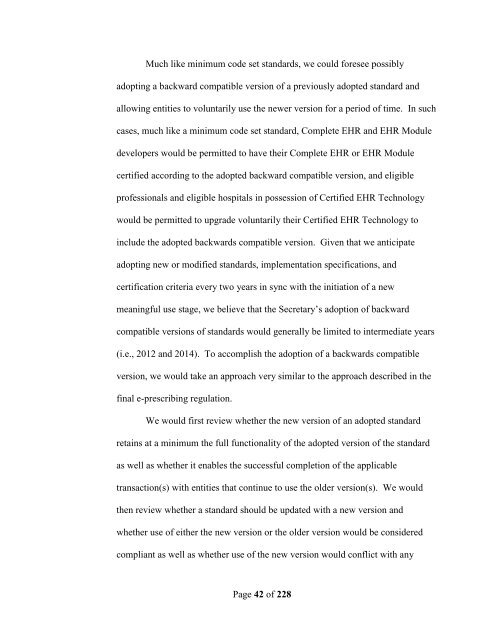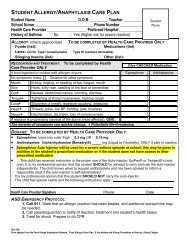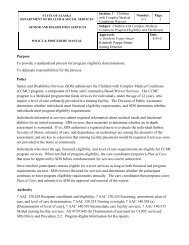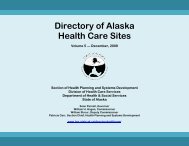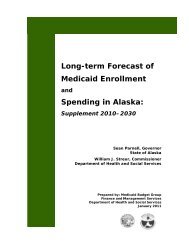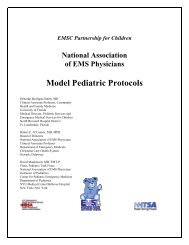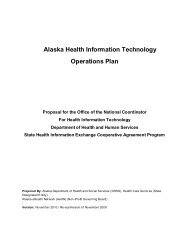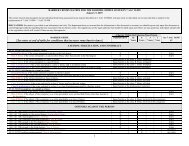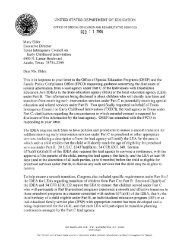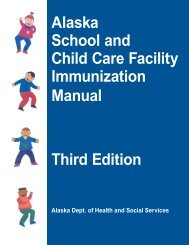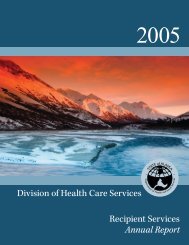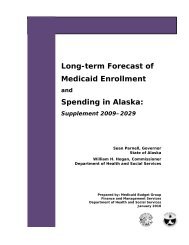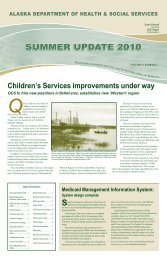ehr onc final certification - Department of Health Care Services
ehr onc final certification - Department of Health Care Services
ehr onc final certification - Department of Health Care Services
Create successful ePaper yourself
Turn your PDF publications into a flip-book with our unique Google optimized e-Paper software.
Much like minimum code set standards, we could foresee possibly<br />
adopting a backward compatible version <strong>of</strong> a previously adopted standard and<br />
allowing entities to voluntarily use the newer version for a period <strong>of</strong> time. In such<br />
cases, much like a minimum code set standard, Complete EHR and EHR Module<br />
developers would be permitted to have their Complete EHR or EHR Module<br />
certified according to the adopted backward compatible version, and eligible<br />
pr<strong>of</strong>essionals and eligible hospitals in possession <strong>of</strong> Certified EHR Technology<br />
would be permitted to upgrade voluntarily their Certified EHR Technology to<br />
include the adopted backwards compatible version. Given that we anticipate<br />
adopting new or modified standards, implementation specifications, and<br />
<strong>certification</strong> criteria every two years in sync with the initiation <strong>of</strong> a new<br />
meaningful use stage, we believe that the Secretary’s adoption <strong>of</strong> backward<br />
compatible versions <strong>of</strong> standards would generally be limited to intermediate years<br />
(i.e., 2012 and 2014). To accomplish the adoption <strong>of</strong> a backwards compatible<br />
version, we would take an approach very similar to the approach described in the<br />
<strong>final</strong> e-prescribing regulation.<br />
We would first review whether the new version <strong>of</strong> an adopted standard<br />
retains at a minimum the full functionality <strong>of</strong> the adopted version <strong>of</strong> the standard<br />
as well as whether it enables the successful completion <strong>of</strong> the applicable<br />
transaction(s) with entities that continue to use the older version(s). We would<br />
then review whether a standard should be updated with a new version and<br />
whether use <strong>of</strong> either the new version or the older version would be considered<br />
compliant as well as whether use <strong>of</strong> the new version would conflict with any<br />
Page 42 <strong>of</strong> 228


